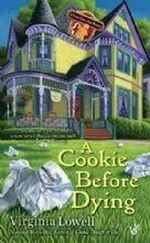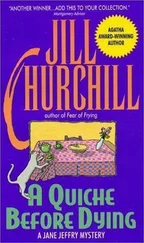Peter Dickinson - Some Deaths Before Dying
Здесь есть возможность читать онлайн «Peter Dickinson - Some Deaths Before Dying» весь текст электронной книги совершенно бесплатно (целиком полную версию без сокращений). В некоторых случаях можно слушать аудио, скачать через торрент в формате fb2 и присутствует краткое содержание. Год выпуска: 1999, ISBN: 1999, Издательство: Mysterious Press, Жанр: Старинная литература, на английском языке. Описание произведения, (предисловие) а так же отзывы посетителей доступны на портале библиотеки ЛибКат.
- Название:Some Deaths Before Dying
- Автор:
- Издательство:Mysterious Press
- Жанр:
- Год:1999
- ISBN:9780446561099
- Рейтинг книги:3 / 5. Голосов: 1
-
Избранное:Добавить в избранное
- Отзывы:
-
Ваша оценка:
- 60
- 1
- 2
- 3
- 4
- 5
Some Deaths Before Dying: краткое содержание, описание и аннотация
Предлагаем к чтению аннотацию, описание, краткое содержание или предисловие (зависит от того, что написал сам автор книги «Some Deaths Before Dying»). Если вы не нашли необходимую информацию о книге — напишите в комментариях, мы постараемся отыскать её.
Some Deaths Before Dying — читать онлайн бесплатно полную книгу (весь текст) целиком
Ниже представлен текст книги, разбитый по страницам. Система сохранения места последней прочитанной страницы, позволяет с удобством читать онлайн бесплатно книгу «Some Deaths Before Dying», без необходимости каждый раз заново искать на чём Вы остановились. Поставьте закладку, и сможете в любой момент перейти на страницу, на которой закончили чтение.
Интервал:
Закладка:
These virtues didn’t tame easily to domesticity. Forde Place hadn’t the look of a mill in miniature, but of one somehow compacted—drop it in water and it would then expand into a mill. Even the chimneys appeared to be lacking their upper sixty feet. The stables too—they should have housed bale-hoppers, not traps and horses. In the early years of her marriage Rachel couldn’t have imagined that she could bear to live here. Now she could hardly remember having wanted to live anywhere else.
Dilys turned the page. Ah. Rachel had forgotten how beautiful. Almost pure abstract. The near-dead lighting of a cloudy noon. Course after course of dark unweatherable bricks, and the lower corner of a window. She and Jocelyn had once come round the corner of the house and found an old builder, there to repair one of the greenhouses, actually caressing a stretch of wall. At their footsteps he had looked up, unashamed. “Lovely work that,” he’d said. “You wouldn’t find a brickie to touch it, these days. Stand a thousand years, that will, and a thousand after.”
Another page. The fire escape. Anne had told the story opposite, how Eli as a young man had worked in a factory that had been gutted by fire, and workers, some of them as young as eight, had died, trapped on the upper floors. All his mills had fire escapes, and so of course did his house, good solid cast iron, painted dark industrial green, zigzagging brazenly up the west facade to the nursery floor. Jocelyn’s parents had buried it in Virginia creeper, whose autumn blaze clashed hideously with the purple bricks of the house, but this had got honey fungus and died during the war. On taking over the house Jocelyn had had the ironwork scraped down and repainted, and Rachel had realised that she actually liked the fire escape for the same reason that she had learnt to like the whole building, that it was, emphatically and uniquely, itself.
More pages. Views and details. The stable clock; the bell in its little turret; the boiler shed for the greenhouses. Not many interiors. The main staircase, of course, but few of the actual rooms, as they fitted in less well with Anne’s thesis, being surprisingly light and lively, though often oddly proportioned. Jocelyn’s parents, on moving in in the nineteen twenties, had redecorated in a nondescript but not unpleasing way; too late for arts and crafts, too early for art deco. Jocelyn, often radical in practical matters, was deeply conservative in his tastes. If a room needed to be done up, he didn’t see that it needed to be done differently.
Tucked in at the end of the folder was a large plain envelope.
“More photos,” said Dilys, peeking in. “Want to look, dearie? Here you are, then.”
Spares. Other interiors. The greenhouses. The laundry. The fire escape again, looking dizzingly down from above. The old nursery—this very room. Last of all, Jocelyn at his desk in the study.
“You’re supposed to be taking pictures of the house, aren’t you? You don’t want people in them.”
“I need a focal point.”
(Liar. She wanted a picture of him at his desk. It would be her fee for taking all this trouble for his Anne.)
“Oh, if you must.”
“You’re going to have to sit still when I tell you. It’ll be a long exposure because I don’t want to bring a lot of lights in. That’s why the sitters in some of those old photographs look as if they’d been stuffed.”
“I can look stuffed as well as any man I know.”
And, of course, he’d stayed as still as a tree stump while she counted the thirty seconds. You could see every wisp of his sparse, sandy hair. His hand, poised above the letter he was writing, had not quivered. His head was bent into the soft glow of the lamp, the rest of his body in shadow. Glow and shadow patterned the room. She had waited till the evening, because this was the hour she had wished to celebrate. Though there were more obviously comfortable rooms in the house, this was where they always sat when alone, a habit begun in the feebleness and chill of his homecoming, because coal had still been rationed and the study was simpler to make snug than anywhere else. She had moved two easy chairs in, and a worktable large enough for her to spread her photographs on. The result was a clutter, but he hadn’t once grumbled, even in jest, about her invasion of so male a sanctum. Though by his second winter Jocelyn had regained his robust indifference to temperature, and then fuel had become available and a modern oil-fired boiler had been installed, they had without any discussion stayed on here. As with so many things, they had grown to the shape of their discomforts, and would for a while have felt awkward anywhere else.
Still, it was a strange room to have chosen, a kind of left-over space, all its proportions dictated by whatever lay on the other side of its walls. The chunk out of the corner opposite the door was the back stairs, whose existence also meant that there was only one window, looking out onto the kitchen yard. The fireplace was off centre in the left-hand wall, because the position of the flue was dictated by the dining room fireplace beyond. The fireplace wasn’t visible in the photograph, but part of the window was, and the intrusion of the back stairs.
Rachel gazed at the picture. It was exactly as she had remembered, unsurprisingly, as it had stood on her worktable from the day she developed it until the morning after Jocelyn’s death, when she had taken it from its frame and put it back here. She had not then expected ever to want to look at it again. It was, in its way just as expressive of Jocelyn’s nature as the one of him with the Rover, just as full of the instant, but at the same time seeming to throb faintly with the movement of the web of time around it, invisible threads linking instant to instant, the whole life, the whole memory of that life, right up to this instant now in which she was looking at the photograph after an interval of almost forty years.
It told her nothing that she did not already know. Half the box was clearly visible by the light of the desk lamp on the small table at Jocelyn’s right elbow. The further half was in shadow.
“Thank you. Dilys,” she whispered. “Copy it for your niece. Copier in office.”
“Lovely,” said Dilys. “I’m not that much of a writer, you see, and I feel stupid sending her just a page or two back, so it’ll be just what I want. Now, I’ll change our specs, shall I, and see what’s on the telly? Oh, Thursday—it’ll be that cooking programme you liked that last time.”
“All right.”
Dilys swung the bed to face the television, a large screen, mounted well up on the further wall, so that Rachel could watch it more easily. The cooking programme would do, anything would do that would distract her from thought and memory. She would have to face it sometime, sometime soon but not now, she was too tired, too disturbed…
It wasn’t enough. As Dilys said, she usually enjoyed cooking programmes, despite the tendency of the presenters to thrust their personalities, always so much less pleasing than they seemed to imagine, at the viewer. Rachel herself had never been much of a cook—she had had no need—but she enjoyed watching the process, and the imagined taste seemed to help her to salivate, moistening her mouth for a while. But not today.
Deliberately she had buried patches of memory, though not in the manner she had read about, where the person in question is no longer superficially aware that some hideous event took place. She had always known, just as she had known where she had hidden the pistol box and put the picture of Jocelyn at his desk. At any time in the past forty years she could, if she had chosen, have related in outline most of what had happened on the night that the young man came, but she had never chosen, never intentionally recalled any part of it. Sometimes, unwilled, a fragment would insinuate itself, but as soon as she was aware of it she would push it away, muttering angrily to herself about something irrelevant, until she could force herself to concentrate on the here and now.
Читать дальшеИнтервал:
Закладка:
Похожие книги на «Some Deaths Before Dying»
Представляем Вашему вниманию похожие книги на «Some Deaths Before Dying» списком для выбора. Мы отобрали схожую по названию и смыслу литературу в надежде предоставить читателям больше вариантов отыскать новые, интересные, ещё непрочитанные произведения.
Обсуждение, отзывы о книге «Some Deaths Before Dying» и просто собственные мнения читателей. Оставьте ваши комментарии, напишите, что Вы думаете о произведении, его смысле или главных героях. Укажите что конкретно понравилось, а что нет, и почему Вы так считаете.









